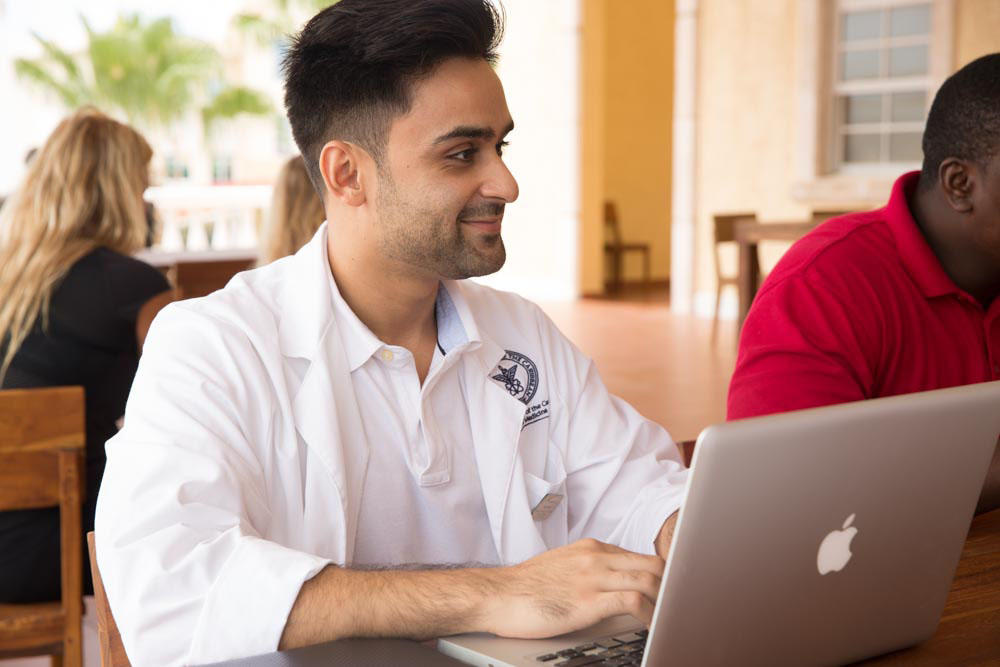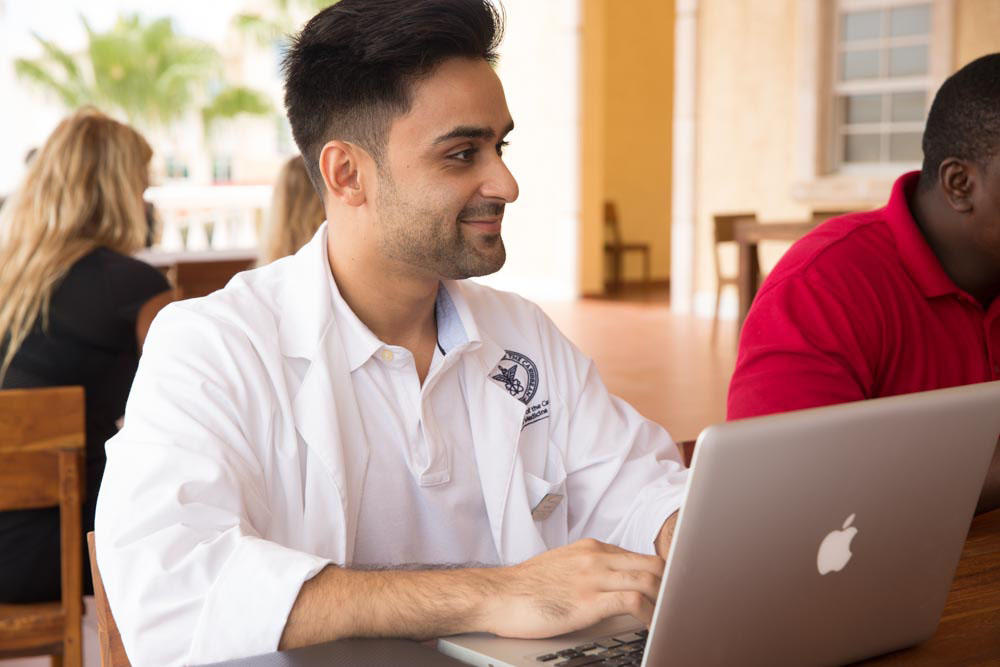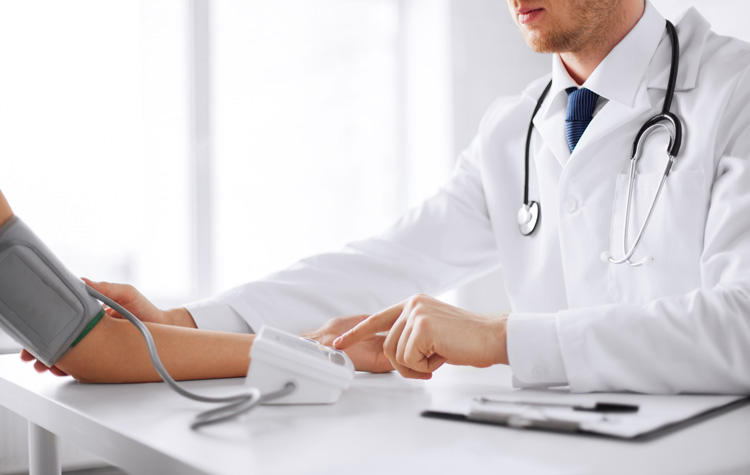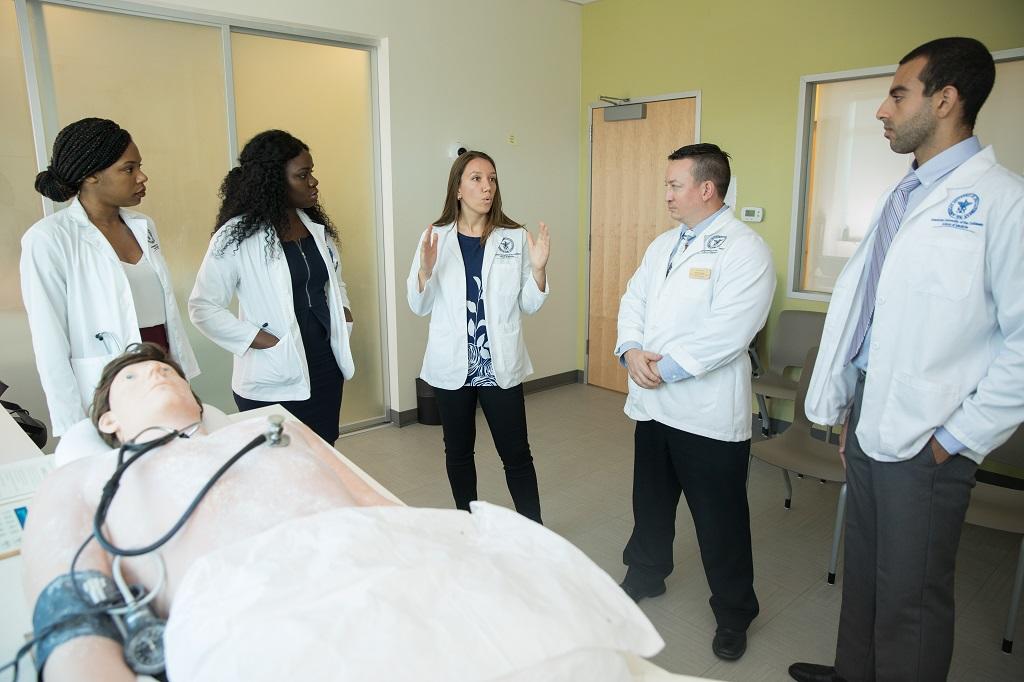As you prepare to complete your degree from an accredited medical school such as American University of the Caribbean School of Medicine (AUC)*, the next big step is applying for a residency after med school. Residency is the process by which newly degreed doctors refine the clinical skills they need to practice on their own. Residency programs last at least three years and as many as seven, depending on the medical specialty.
Applying for residency is a complex process and you may have a lot of questions. What is the medical residency application process like? What documentation will I need to provide? What kinds of medical residency selection criteria do programs consider? This article will give you medical residency application tips that will help you navigate this highly competitive process.
Noteworthy Characteristics of Medical Residency Applicants
As part of the application for medical residency process, you will need to submit a wealth of information, including transcripts and letters of recommendation.
Generally speaking, some important medical residency selection criteria for medical school graduates are:
- Clerkship grades. In your third and fourth years of medical school, you will perform clinical rotations, also known as clerkships. The grades you receive for these experiences are of key importance when residency programs evaluate candidates.
- United States Medical Licensing Examination® (USMLE®) scores. The USMLE is a three-part exam that tests your medical skills and knowledge. Students typically take Step 1 during their second year of medical school and Step 2 during their fourth year. (The final exam for licensing, Step 3, is taken during residency.)
- Grades in your chosen specialty. The grades you get in the classes related to your chosen specialty outweigh grades you get in unrelated classes. For example, if you want to enter a pediatrics residency, your grades in pediatric classes will hold more value than your grades in other classes.
How to Apply for Medical Residency
Most medical students secure residencies through the National Resident Matching Program (NRMP). This nonprofit organization was established to match the preferences of medical students with the preferences of the programs to which they apply. Applicants create a rank-order list of the programs they would like to participate in, ranked in order of preference. Residency programs create ranked lists of applicants, and the NRMP uses a computer algorithm to match students with programs. Medical students start submitting residency applications in September of their fourth year. Programs start the interview process that month, and it continues through the following January. Students begin submitting their rank-order lists in February.
Students find out what program they matched with on the third Friday in March, a day known as Match Day. Applicants who are not matched with a program may still secure a residency through the Supplemental Offer and Acceptance Program (SOAP). For more information, see the NRMP's pages on Match Week (the week leading up to Match Day) and SOAP.
The Association of American Medical Colleges (AAMC) developed the Electronic Residency Application Service as a way for students to apply to residencies. Many medical students begin working on their applications for medical residency during the summer before their fourth year of medical school. They research residency programs and start working on the application portfolio. This portfolio includes the application and curriculum vitae (CV) as well as medical school transcripts, USMLE scores, letters of recommendation from instructors or supervisors, a Medical Student Performance Evaluation (MSPE), and a personal statement.
In the personal statement, you describe your achievements and explain your reasons for wanting to apply to a particular residency program. The American Association of Family Practitioners (AAFP) has a web page called Writing a Personal Statement for Residency Application that gives excellent advice on crafting a compelling personal statement.
Top candidates will have excellent letters of recommendation. It’s a good idea to take clinical rotations in your planned field of study and secure letters of recommendation from those supervisors. They can attest to your skills and abilities that will make you an excellent physician in your chosen discipline.
This article has given you a look at the medical residency application process, and you may now have a better understanding of the medical residency selection criteria that programs consider. As an AUC student, many resources are available to help you with this process. Visit our page, Supporting You - Resources to Help AUC Students Prepare For Residency Match, for more information on how AUC can help, from workshops and webinars to coaching and advisory programs.
Related resources:
- AUC School of Medicine Residency Placements
- Supporting You - Resources to Help AUC Students Prepare For Residency Match
- What Is A Medical Residency Program And How Do I Get Into One?
- How To Survive Your First Year Residency
*American University of the Caribbean School of Medicine is accredited by the Accreditation Commission on Colleges of Medicine (ACCM, www.accredmed.org), which is the accreditor used by the country of St. Maarten.





